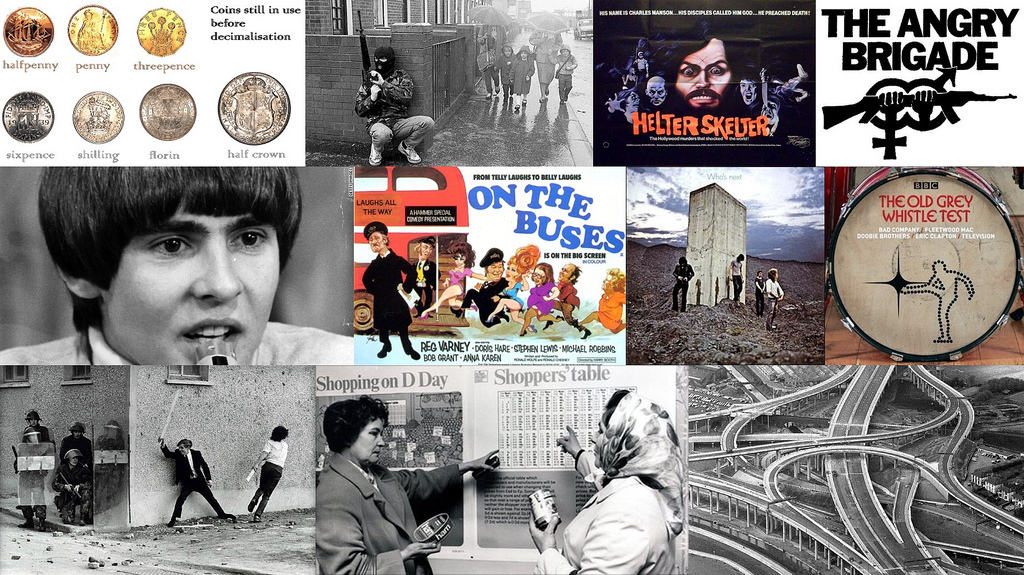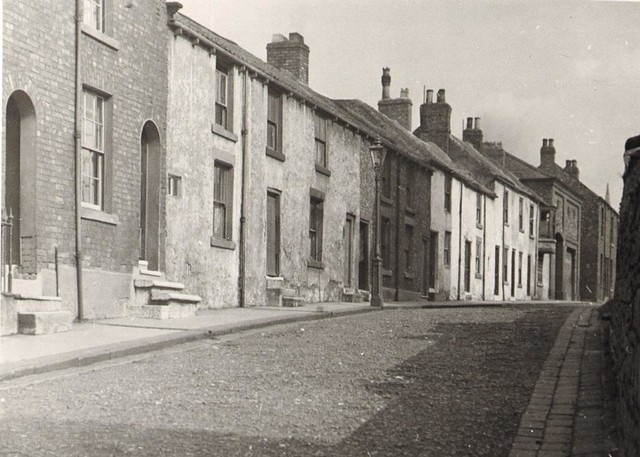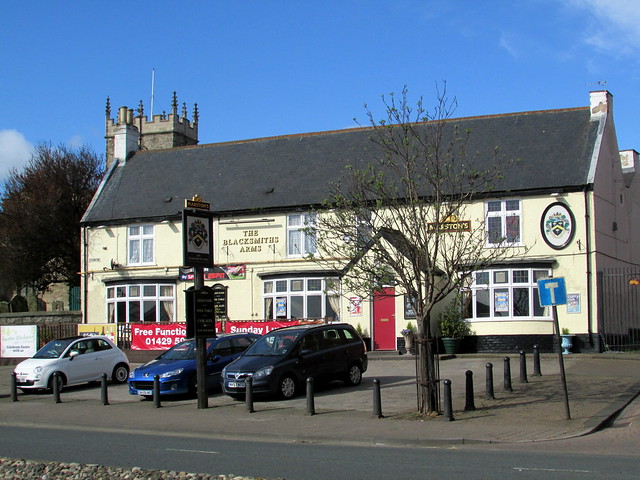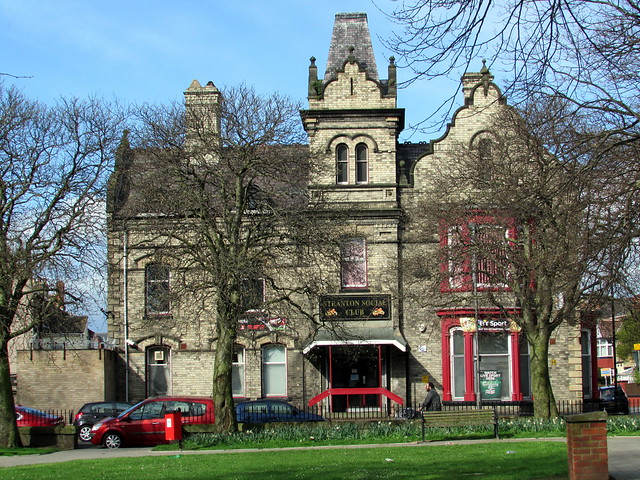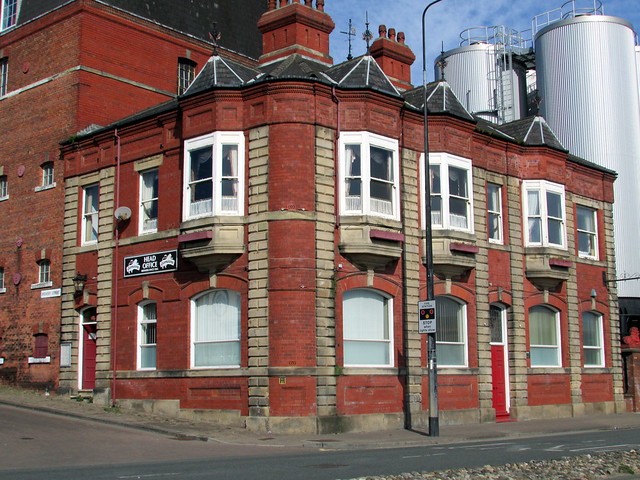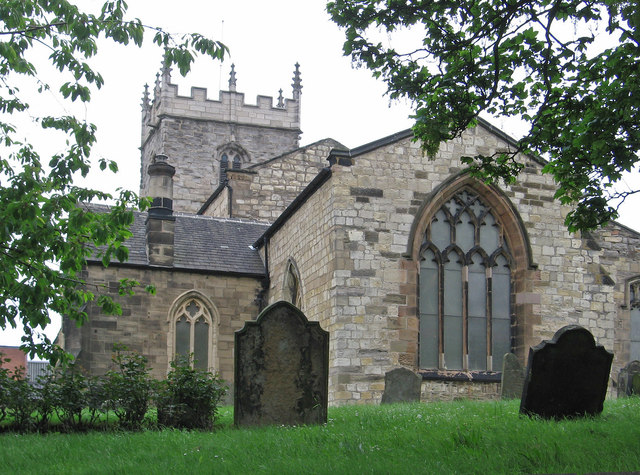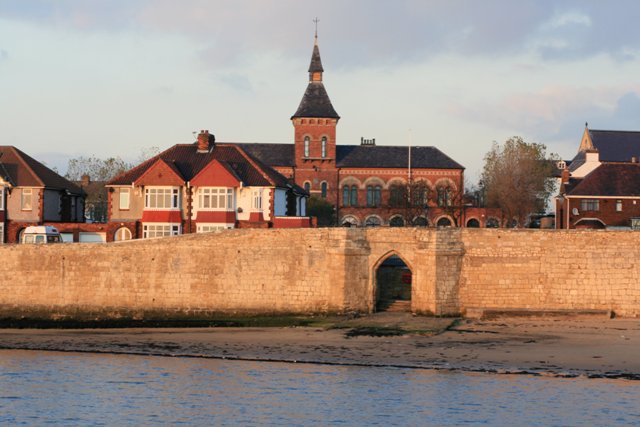That Was the Year That Was - 1971

-
Description
1971 This could well be the year that marked the start of the digital age when the Microprocessor was invented. We also saw the use of more and more of the transistor technology in use in things like hand held calculators which although are still very expensive over time will drop in price and increase in function to where we are today. It is also the first year North Sea Oil production begins in Norway. One other major change is the change to Decimalisation in the UK on and Ireland on February 15th . The birth of Greenpeace signals a need to question how we manage the resources entrusted to us and a means of organised questioning of governments around the world. The Beatles' "Helter Skelter" is played at Charles Manson trial One of the two great influences on the thinking of Charles Manson, along with the Book of Revelation, was the musical group the Beatles. According to Family members, Manson would most often quote "the Beatles and the Bible." The two influences were linked, in that Manson saw the four Beatles members as being the "four angels" referred to in Revelation 9. Revelation 9 also tells of "locusts"--the Beatles, of course--coming out upon the earth. It describes prophets as having "faces as the faces of men" but with "the hair of women"--an assumed reference too the long hair of the all-male English group. In Revelation 9, the four angels with "breastplates of fire"--electric guitars--"issued fire and brimstone"--song lyrics. Manson believed that the Beatles spoke to him through their lyrics, especially those included in the White Album, released in December 1968. Several songs from the White Album crystalized Manson's thinking about a coming revolt by blacks against the white Establishment. He interpreted many of the songs idiosyncratically, believing, for example, that "Rocky Raccoon" meant black people and "Happiness is a Warm Gun" was a song about getting firearms to carry on the revolution rather than--more obviously--a song about sex. The White Album played a key role in forging Manson's warped ideology. According to Family member Paul Watkins, "Before Helter Skelter came along, all Charlie cared about was orgies." 1971: Memories of a lost currency Old money was divided into: pounds (£ or l ) shillings (s. or /-) and pennies (d.) There were twenty (20) shillings per pound. The shilling was subdivided into twelve (12) pennies. The penny was further sub-divided into two halfpennies or four farthings (quarter pennies). 2 farthings = 1 halfpenny 2 halfpence = 1 penny (1d) 3 pence = 1 thruppence (3d) 6 pence = 1 sixpence (a 'tanner') (6d) 12 pence = 1 shilling (a bob) (1s) 2 shillings = 1 florin ( a 'two bob bit') (2s) 2 shillings and 6 pence = 1 half crown (2s 6d) 5 shillings = 1 Crown (5s) The symbols 's' for shilling and 'd' for pence derive from the Latin solidus and denarius used in the Middle Ages. The '£' sign developed from the 'l' for libra. A £1 coin was called a Sovereign and was made of gold. A paper pound often was called a 'quid'. Slang "Bob" is slang for shilling. A "crown" was originally five shillings, originally being a gold coin issued during the reign of Henry VIII in 1544. It became a silver coin in 1551 under his son Edward VI. It remained as a five shilling piece or coin until decimalisation is 1971. It even survived decimalisation to become a twenty five pence coin, struck for commemorative purposes in 1972, 1977, 1980, and 1981. With the issue of 1990 for the Queen Mother's 90th birthday, it had been very quietly decided to make a five pound coin of the same size and format as the old crown, and that it would continue to be known as a crown. This was sensible enough, because many world coins are known as "crown sized coins" or simply "crowns", although to the American mind they will probably be termed "dollar sized coins". Crowns would be referred to as "five bob". Actually, the change in face value confuses many British folk, who now frequently believe the old five shilling or twenty five pence coins to be worth five pounds. sometimes they even inform us that we are wrong! A halfcrown or sometimes "half-a-crown" is, as its name implies, valued at half the face value of an old five shilling piece, so was worth two shillings and sixpence. A halfcrown might also be referred to as "two and a kick", although I do not know the precise origin, i suspect it may be from (Cockney) rhyming slang meaning "two and six", i.e. two shillings and six pence. I should further explain that the "shillings" part was often omitted in everyday speech, so that "two shillings and three pence" would be abbreviated to "two and three" or "two and threepence". After the Norman Conquest in 1066, the pound was divided into twenty shillings or 240 pennies. It remained so until decimalization on 15 February 1971. The first decimal coins in Britain dropped into purses and wallets across the nation on 15 February 1971. It was the beginning of the end for the faithful tanners, bobs and half-crowns of the old system, which was phased out over the next 18 months. The massive change had taken the Decimal Currency Board five years to plan. Although we all have money worries, especially at a time of such economic -austerity, few of us ever spare a thought for the coins that jangle in our pockets. We take them for granted; usually we -barely even bother to look at them. On Monday, February 15, 1971, Edward Heath’s government formally abolished the old coinage that had served for generations, replacing it with a new -decimal system inspired by Napoleonic France. Out went the shilling, the half-crown and the sixpence, with all their historic associations. In came a new, unfamiliar European-style -currency — much to the outrage of millions of ordinary Britons. Forty years on from ‘Decimal Day’, it looks a profoundly symbolic moment, marking the end of a proud history of defiant insularity and the beginning of the creeping -Europeanisation of Britain’s institutions. Like so many of the social and cultural changes of the Sixties and Seventies, it was remarkably undemocratic. Nobody ever voted for it; nobody ever asked the British people for their opinion. Decimalisation was imposed from on high, the edict handed down by a political and intellectual elite indifferent to the romantic charms of history and tradition, but determined to turn Britain into a modern European state. Like the reformers who wanted to revamp England’s historic counties, the planners who relished demolishing our Victorian -architectural heritage, or those poor souls who wanted to sign up to the euro (and who have gone remarkably quiet), the decimal--lovers fantasised about a modernised Britain with all the quirks ironed out — a larger, colder -version of Belgium. Yet they were not the first reformers to dream of scrapping Britain’s age-old -coinage. Even the Victorians had their fair share of decimal enthusiasts, although their -campaign never caught on. Now decimal currencies are the norm, we often forget they represent something -relatively new. As late as 1789, only one major European country, Russia, had a -decimalised currency, the rouble, which was divided into 100 kopeks. But when the French-Revolution broke out that year, radicals saw their chance to sweep away the legacy of the past. Six years later, the French introduced the franc, divided into 100 centimes, which was to become their national-currency for the next two centuries. As Napoleon’s armies rampaged across Europe, the French took their strange new decimal notions with them. And although Britain stood firm against the Corsican-dictator, there were, as so often, more than a few starry-eyed idealists who wanted to copy the French example. In 1841, a small group of -Victorian do-gooders even founded the Decimal-Association to campaign for currency reform, and in 1859, a Royal Commission considered but rejected the idea, judging it had ‘few merits’. But the decimal enthusiasts never gave up the fight. The pound sterling, the half-crown, the shilling and the sixpence were too deeply embedded in our national life; they were symbols of a country set apart, proud of its island status. Cost of Living Back in 1971 you could buy a dozen eggs for 23p, see Love Story at the pictures for 30p and fill up your car at 7p a litre. Texas Instruments also introduced its groundbreaking pocket calculator – handy if you wanted to tot up how much of the newly introduced decimal currency you had in your pocket. Average salaries were around £2,000 a year in 1971, with the average house selling for £5,632. Mars bar: 2p, First class stamp: 3p, Pint of milk: 6p, Loaf of bread: 9½p, Pint of bitter: 11p, Bunch of bananas: 18p, Packet of cigarettes: 27p, Gallon of petrol: 33p, Ticket to Wembley Cup Final: £2. The year of 1971 saw the arrival of decimal coinage, the departure of Jim Morrison and a top 20 hit for Tony Christie with "(Is This The Way to) Amarillo?" In 1971, only 35 per cent of people owned a landline telephone - now 93 per cent do. The first call using a mobile phone was made in 1973 so ownership in 1971 was not even a possibility - now 70 per cent of households have at least one. Three-quarters of households now have a car, compared with 52 per cent in 1971. It was the era of Edward Heath, the decade of the donkey jacket, the age of the Austin Allegro, lurid wallpaper, silly hairstyles and burly men warming their hands around braziers. Memories of 71 The teenagers dancing on Top of the Pops were usually wearing a pair of National Health glasses. While people shook their heads sorrowfully over the breakfast table, digesting the news of some new IRA bombing or absurdly petty British Leyland strike, their surroundings often told a rather more optimistic story. The lurid furnishings of their new suburban homes, the swanky hostess trolley in the kitchen, the bottles of Blue Nun and Black Tower cooling in the fridge, the brand new colour television in the lounge, the turmeric-coloured Rover SD1 in the drive, even their teenage children's painfully tight flared trousers - all of those things, which are so easy to satirise today, reflected the realities of a brave new world, forged in the crucible of mass abundance. In 1971, British tourists took some four million holidays abroad - which then seemed an awful lot. But by 1973 that figure had jumped to nine million and by 1981 it was more than 13 million. For even relatively poor, working-class families, holidays no longer meant Blackpool and Bognor but Malta and Majorca. And "abroad", once regarded with such suspicion, now meant two weeks of sun, sea, sand and sangria. The boom in foreign holidays was only one example of a nation broadening its horizons. Yes, the TV schedules were still full of casual sexism and astonishing racism, while teenage boys who wore make-up in emulation of Marc Bolan and David Bowie often risked a vigorous kicking. As late as 1971, women were banned from going into Wimpy Bars on their own, after midnight, on the grounds that the only women out on their own at that hour must be prostitutes. 1971 What's on TV Mr Benn, The Two Ronnies, Parkinson, The Generation Game, The Onedin Line, The Old Grey Whistle Test, Budgie, The Comedians, Follyfoot, The Persuaders, The Fenn Street Gang, Upstairs, Downstairs, Jason King, The Basil Brush Show, The Black and White Minstrel Show, Morecambe and Wise, Bruce Forsyth and the Generation Game, Rolf Harris, Ken Dodd, Tomorrow's World, Val Doonican, Opportunity Knocks! with Hughie Green. 1971 UK Music 9 January - "Grandad" -Clive Dunn 30 January - "My Sweet Lord" - George Harrison 6 March - "Baby Jump" - Mungo Jerry 20 March - "Hot Love" -T. Rex 1 May - "Double Barrel" - Dave & Ansel Collins 15 May - "Knock Three Times" - Dawn 19 June -"Chirpy Chirpy Cheep Cheep" - Middle of the Road 24 July -"Get It On" - T. Rex 21 August - "I'm Still Waiting" - Diana Ross 18 September - "Hey Girl Don't Bother Me" - The Tams 13 November - "Coz I Luv You" - Slade 11 December -"Ernie (The Fastest Milkman in the West)" - Benny Hill 1971 Timeline 1 January – The Divorce Reform Act 1969 came into effect, allowing couples to divorce after a separation of two years (five if only one of them agrees). A divorce can also be granted on the grounds that the marriage has irretrievably broken down, and it is not essential for either partner to prove "fault". It is revealed on 19 January 1972 that the number of divorces in Britain during 1971 exceeded 100,000 for the first time. Cigarette advertisements banned on TV. 2 January – A stairway crush at the Rangers vs. Celtic football match at Ibrox Stadium in Glasgow killed 66 and left many more injured. 3 January – BBC Open University broadcasts began. 8 January – Tupamaros kidnapped Geoffrey Jackson, British ambassador to Uruguay, in Montevideo; they kept him captive until September. 12 January – The Hertfordshire house of Robert Carr, Secretary of State for Employment, was bombed. Nobody was injured. 14 January – "The Angry Brigade", an extremist group, admitted responsibility for the bombing of Robert Carr's house, as well as planting a bomb at the Department of Employment offices at Westminster. 20 January – The first ever postal workers' strike took place, led by UPW General Secretary Tom Jackson, in an attempt to win a 19.5% pay rise. 23 January – The first Commonwealth Heads of Government Meeting, in Singapore, gave Britain permission to sell weapons to South Africa. 1 February – The Broadcast receiver licence was abolished for radios. 3 February – Tyneside-set British crime film Get Carter starring Michael Caine premièred (in Los Angeles). 3 February - Davy Jones announces he is leaving the Monkees. 4 February – Rolls-Royce went bankrupt and is nationalised. 11 February – The UK, along with the USA, the USSR and others signed the Seabed Treaty, outlawing nuclear weapons on the ocean floor. 15 February - Decimalisation: Ireland and the United Kingdom both switched to decimal currency. Enoch Powell predicted an "explosion" unless there is a massive repatriation scheme for the immigrants. 24 February – Home Secretary Reginald Maudling announced the Immigration Bill that is set to strip Commonwealth immigrants of their right to remain in the United Kingdom. The bill is supported by Enoch Powell, but the former shadow cabinet minister continued to demand a massive voluntary repatriation scheme for the immigrants. 1 March – An estimated 120,000 to 250,000 "kill the bill" protesters went on strike against the 1971 Industrial Relations Act in London. 1 March – Bassist John Deacon joins the band, Queen. 4 March – The Rolling Stones open their UK tour in Newcastle upon Tyne, intended as a "farewell" to the UK prior to the band's relocation to France as "tax exiles". 5 March – Ulster Hall, Belfast, Northern Ireland, sees the first live performance of Led Zeppelin's iconic song "Stairway to Heaven". 7 March – Following the recent protests in London, some 10,000 striking workers protested in Glasgow against the Industrial Relations Bill. 8 March – The Postal workers' strike ended after 47 days. 1 April – The United Kingdom lifted all restrictions on gold ownership. 6 April – The Rolling Stones hold a party in Cannes to officially announce their new contract with Atlantic and the launch of Rolling Stones Records. 11 April – Ten British Army soldiers were injured in rioting in Derry, Northern Ireland. 15 April – The planned Barbican Centre was given the go-ahead. 18 April – There was a serious fire at Kentish Town West railway station. The station remained closed until 5 October 1981. 19 April – Unemployment reached a post-Second World War high of nearly 815,000. 27 April - Eight members of the Welsh Language Society went on trial for destroying English language road signs in Wales. British Leyland launched the Morris Marina which succeeded the Minor (a smaller model, production of which ceased after 23 years with 1.6 million sold) and Oxford models and was similar in size to the Ford Cortina (to which it had been designed as a direct competitor), Vauxhall Victor and Hillman Hunter. It has 1.3 and 1.8 litre petrol engines, rear-wheel drive and a choice of four-door family saloon and two-door coupé body styles, with a five-door estate set to follow in the next two years. 1 May - A bomb planted by The Angry Brigade exploded in the Biba Kensington store. The Daily Mail appeared as a broadsheet newspaper for the last time. 2 May – The Daily Mail was relaunched as a tabloid. 8 May – Arsenal won the FA Cup final with a 2-1 win over Liverpool at Wembley Stadium. Substitute Eddie Kelly became the first substitute to score in an FA Cup final, and it was only the second time this century (and the fourth time ever) that an English team has completed the double of the Football League First Division and the FA Cup. 11 May – The Daily Sketch, Britain's oldest tabloid newspaper, was withdrawn from circulation after 62 years. It has been absorbed by the Daily Mail. 12 May – Mick Jagger marries Bianca de Macías in Saint-Tropez, France, in a Roman Catholic ceremony. Paul McCartney, Ringo Starr, and their wives are among the wedding guests. 16 May - BBC television makes the first broadcast of Benjamin Britten's opera for television, Owen Wingrave. 20 May – Chelsea F.C., last year's FA Cup winners, won the European Cup Winners' Cup with a 2-1 win over Real Madrid of Spain in Athens, Greece. 23 May – Jackie Stewart won the Monaco Grand Prix. 7 June – The children's show Blue Peter buried a time capsule in the grounds of BBC Television Centre, due to be opened on the first episode of the year 2000. 14 June - The first Hard Rock Cafe opened near Hyde Park Corner in London. Education Secretary Margaret Thatcher's proposals to end free school milk for children aged over seven years were backed by a majority of 33 MPs. 15 June - Several Labour run councils threatened to increase rates in order to continue the free supply of milk to school children aged over seven years, in reaction to Thatcher's plans to end free milk supply to school children of that age group. Thatcher defends her plans, saying that the change will free more money to be spent on the construction of new school buildings. Upper Clyde Shipbuilders entered liquidation. 20 June – Britain announced that Soviet space scientist Anatoli Fedoseyev had been granted asylum. 20-24 June – The first Glastonbury Festival to take place at the summer solstice is held in South West England. Performers include David Bowie, Traffic, Fairport Convention, Quintessence and Hawkwind. 21 June – Britain began new negotiations for EEC membership in Luxembourg. 24 June – The EEC agreed terms for Britain's proposed membership and it was hoped that the nation will join the EEC next year. 25–27 June - The first Reading Festival "of jazz and progressive music" took place. 1 July – The film Sunday Bloody Sunday is released, one of the first mainstream British films with a bisexual theme. 6 July – Police launched a murder investigation after three French tourists are found shot dead in Cheshire. 8 July – Two rioters were shot dead by British troops in Derry, Northern Ireland. 13 July – Barlaston man Michael Bassett, 24, was found dead in his fume-filled car. Police identified him as their prime suspect in the recent triple French tourist murder in Cheshire. 14 July – The Criminal Damage Act abolished the theoretically capital – offence of arson in royal dockyards. 19-24 July - Benjamin Britten conducts recording of Edward Elgar's The Dream of Gerontius at Snape Maltings. 29 July – The United Kingdom opted out of the Space Race, with the cancellation of its Black Arrow launch vehicle. 30 July – Upper Clyde Shipbuilders workers began to take control of the shipyards in a work-in under the leadership of Jimmy Reid. 1 August - The Concert for Bangladesh at Madison Square Garden, New York, starring Ravi Shankar, George Harrison, Ringo Starr, Bob Dylan, and Leon Russell; also featuring Billy Preston, Eric Clapton, Jesse Ed Davis, and Badfinger. 6 August – Chay Blyth became the first person to sail around the world east to west against the prevailing winds. 9 August – British security forces in Northern Ireland detained hundreds of guerilla suspects and put them into Long Kesh prison - the beginning of an internment without trial policy. Twenty died in the riots that followed, including eleven in Ballymurphy Massacre. 11 August – Prime Minister Edward Heath participated in the British victory in the Admiral's Cup yacht race. 14 August - The Who release their fifth studio album Who's Next, reaching No. 1 in the UK and No. 1 in the US. 15 August – Showjumper Harvey Smith was stripped of his victory in the British Show Jumping Derby by judges for making a V sign. 1 September – The pre-decimal penny and threepence ceased to be legal tender. 3 September – Qatar gained independence from the United Kingdom. Unlike most nearby emirates, it declined to become part of either the United Arab Emirates or Saudi Arabia. 7 September – The death toll in The Troubles of Northern Ireland reached 100 after three years with the death of 14-year-old Annette McGavigan, who was fatally wounded by a gunshot in crossfire between British soldiers and the IRA. 9 September – British Ambassador Geoffrey Jackson was freed after being held captive for eight months by extreme left-wing guerillas in Uruguay. 21 September – The television music show The Old Grey Whistle Test was aired for the first time on BBC 2. 24 September – Britain expelled 90 Russian diplomats for spying, following revelations made by a KGB defector; fifteen are not allowed to return. 1 October – Godfrey Hounsfield's invention, the CAT scan, was used for the first time on a patient at a hospital in Wimbledon. 13 October – The British Army began destroying roads between the Republic of Ireland and Northern Ireland as a security measure. 21 October - A gas explosion in Clarkston, Glasgow killed twenty people. The Television drama Edna, the Inebriate Woman is shown on BBC One. 23 October – Two women were shot dead by soldiers in Belfast as their car failed to stop at a checkpoint. 28 October - The House of Commons voted in favour of joining the EEC by a vote of 356-244. The United Kingdom became the sixth nation to launch a satellite into orbit, the Prospero X-3, using a Black Arrow carrier rocket. 30 October – The Democratic Unionist Party was founded by the Rev. Ian Paisley in Northern Ireland. 31 October – A IRA bomb exploded at the top of the Post Office Tower in London. 8 November – Led Zeppelin release their officially untitled fourth studio album, which would become the band's biggest-selling album. 10 November – The 10-route Spaghetti Junction motorway interchange was opened north of Birmingham city centre, incorporating the A38 (M) (Aston Expressway) and the southern section of the M6 motorway. The interchange would have a total of 12 routes when the final stretch of the M6 was opened the following year. 22 November – Six climbers died trying to climb Cairn Gorm. 2 December – The Queen's yearly allowance was increased from £475,000 to £980,000. 4 December – McGurk's Bar bombing: Fifteen people were killed and seventeen injured in a bomb attack that destroyed a bar in Belfast, the highest death toll from a single incident in the city during "The Troubles". The Ulster Volunteer Force are believed to have been behind the bombing. 10 December – Dennis Gabor won the Nobel Prize in Physics "for his invention and development of the holographic method". 16 December – Banking and Financial Dealings Act passed. It updates the definition of bank holidays in the U.K. 29 December – The United Kingdom gave up its military bases in Malta. 30 December – The seventh James Bond film - Diamonds Are Forever - was released. Sean Connery, who appeared in the first five films before being succeeded by George Lazenby for On Her Majesty's Secret Service in 1969, returned to the role for one final appearance. Inflation stood at a 30-year high of 8.6%. The government introduced a policy of "Competition and Credit Control", lifting quantitative limits on lending by retail banks and allowing them greater freedom to offer savings accounts. The government imposed a rent freeze. David Hockney's acrylic painting Mr and Mrs Clark and Percy was completed. Oil overtook coal as the most consumed fuel in Britain for the first time. Irish Republican Army (IRA) carry out a 'punishment attack', tarring and feathering 4 men accused of criminal activities in Belfast. The dot-matrix printer invented. The food processor invented. The liquid-crystal display (LCD) invented by James Fergason. The microprocessor invented by Faggin, Hoff and Mazor. VCR or videocassette invented. -
Owner
brizzle born and bred -
Source
Flickr (Flickr) -
License
What does this mean? Attribution-NonCommercial-ShareAlike License
-
Further information
Link: https://www.flickr.com/photos/20654194@N07/17425601261/
Resource type: Image
Added by: Peter Smith
Last modified: 7 years, 11 months ago
Viewed: 1114 times
Picture Taken: 2015-05-08T15:22:51 -
Co-Curate tags
